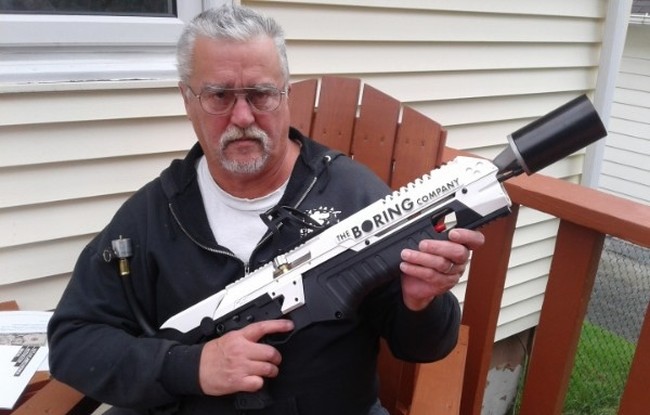New Mexican President Claudia Sheinbaum appears to be shifting away from the “hugs, not bullets” approach her predecessor, Andrés Manuel López Obrador, promoted over the last six years.
The strategy, which sought to reduce violence by avoiding direct confrontations with drug cartels, relied on social programs to deter young people from joining organized crime.
However, recent actions by Sheinbaum’s administration indicate a more assertive stance toward Mexico’s drug cartels, with several violent confrontations reported in the first month of her term.
Trump Surges To Victory – Get the Ultimate Trumpinator Bobblehead To Celebrate 2024!
In her first days in office, Sheinbaum notably avoided using the slogan popularized by López Obrador, signaling a shift in tone. “Clearly, it isn’t a question of hugs for criminals,” she said, clarifying that social support efforts were meant for impoverished youth rather than active cartel members.
Despite her efforts to distance herself from the slogan, Sheinbaum has vowed to continue López Obrador’s broader social policies, even as her administration increasingly turns to military force in cartel hotspots.

Several confrontations in recent weeks illustrate the changing approach.
On her first day in office, soldiers in Chiapas opened fire on a truck they suspected of belonging to a criminal group.
Tragically, the occupants turned out to be migrants, with six killed and ten others injured in the incident. Days later, army and National Guard troops killed three innocent bystanders while pursuing suspected gunmen.
In another clash, the National Guard opened fire on a vehicle carrying migrants, resulting in two Colombian fatalities and multiple injuries.
López Obrador’s term saw a rise in cartel violence, but he maintained the “hugs, not bullets” strategy, opting to focus on social reforms rather than direct military confrontations.
In one high-profile incident, he called off the arrest of cartel leader Ovidio Guzmán in 2019 after cartel threats to unleash violence in Culiacán.
López Obrador argued that preventing bloodshed outweighed the need for the arrest. In contrast, Sheinbaum’s administration has taken a more aggressive approach, with recent clashes yielding high casualty counts among suspected cartel members while leaving Mexican soldiers unscathed.
The “no bullets” policy had been heavily criticized, with many analysts attributing the rise of cartels to López Obrador’s reluctance to confront them directly.
Security expert David Saucedo noted that the U.S. government had pressured López Obrador to resume capturing high-level cartel leaders during his term, but progress was limited. Saucedo stated, “The hugs, not bullets strategy ended some time ago,” adding that high-level arrests have increased, along with extraditions of cartel figures.
Complicating the situation for Sheinbaum is the diversification of cartel operations.
Drug cartels have increasingly turned to migrant smuggling as a profitable enterprise, with migrants from Central and South America now paying significantly more for safe passage to the United States.
The new migration routes, including through the treacherous Darien Gap, have led cartels to treat migrants not only as income sources but as leverage in confrontations with authorities.
Some reports indicate cartels are using migrants as human shields and even recruiting foreign fighters as hitmen.
Military analyst Juan Ibarrola argues that cartels’ involvement in migrant smuggling and the recruitment of foreign operatives has intensified Mexico’s internal conflicts. “The recruitment of larger batches of foreign fighters is yet another sign of the gradual deepening of Mexico’s armed conflicts,” said security analyst Falko Ernst.
He warned that the trend, along with the use of improvised explosives, has escalated under López Obrador and may prove difficult to control.
In line with López Obrador’s policies, Sheinbaum has retained the militarization of law enforcement, which puts soldiers in roles traditionally held by police.
This strategy, combined with the increased presence of both drug traffickers and migrants in contested regions, has led to concerns about civilian casualties.
Saucedo noted, “It is a fact that the National Guard does not correctly apply the rules of engagement on the use of force. They tend to open fire before investigating or trying to detain criminal suspects.”
With the escalation of clashes and high-profile confrontations, Sheinbaum’s administration faces a complex landscape of cartel violence, migration challenges, and the need for effective law enforcement measures.
Her response to these issues in the coming months will likely define her approach to public safety and cartel control, and further clarify any departure from her predecessor’s controversial “hugs, not bullets” policy.
The opinions expressed by contributors and/or content partners are their own and do not necessarily reflect the views of LifeZette. Contact us for guidelines on submitting your own commentary.
Read the full article here


![‘Hugs, Not Bullets’ Strategy Being Abandoned As Bloodshed Runs Wild In Mexico [WATCH] ‘Hugs, Not Bullets’ Strategy Being Abandoned As Bloodshed Runs Wild In Mexico [WATCH]](https://www.lifezette.com/wp-content/uploads/2024/11/2024.11.08-03.24-lifezette-672e2d2f9cd92.jpg)




![Scott Jennings Calls Out the ‘Real Objective’ of Rogue Federal District Judges [WATCH] Scott Jennings Calls Out the ‘Real Objective’ of Rogue Federal District Judges [WATCH]](https://www.lifezette.com/wp-content/uploads/2024/11/2024.11.13-06.49-lifezette-6734f4a7b879c.jpg)


